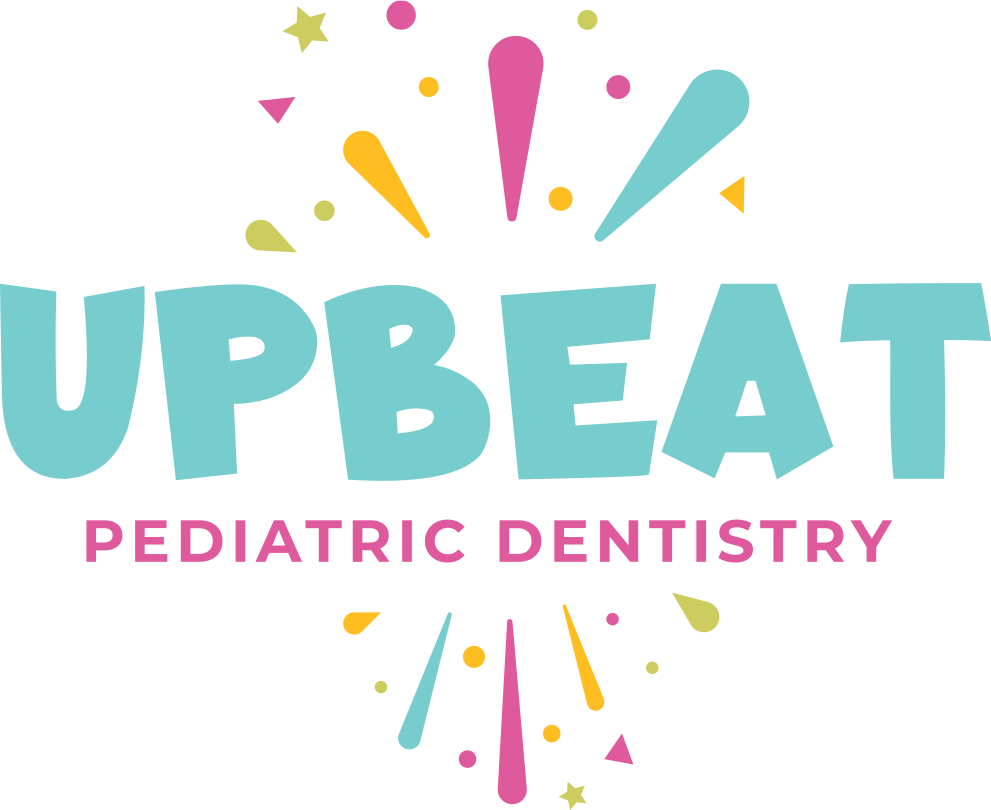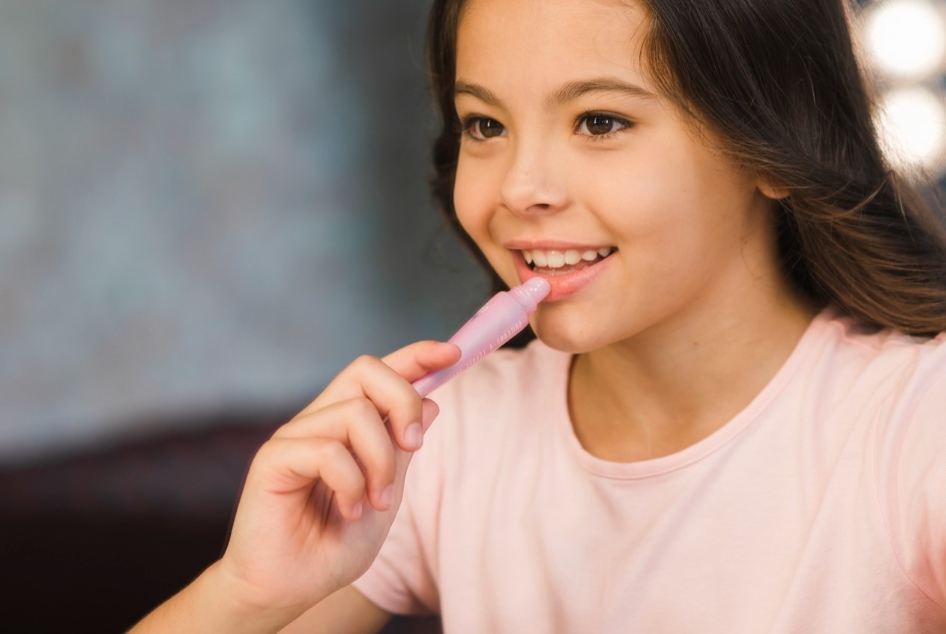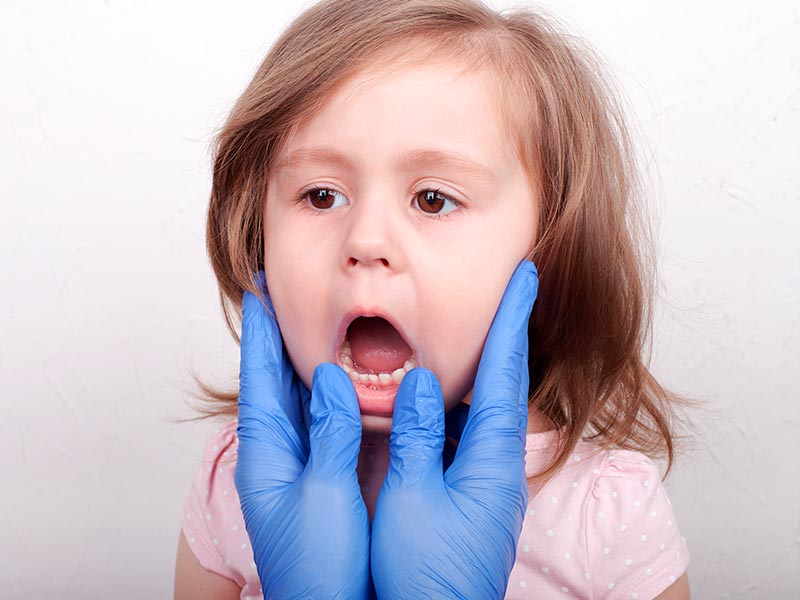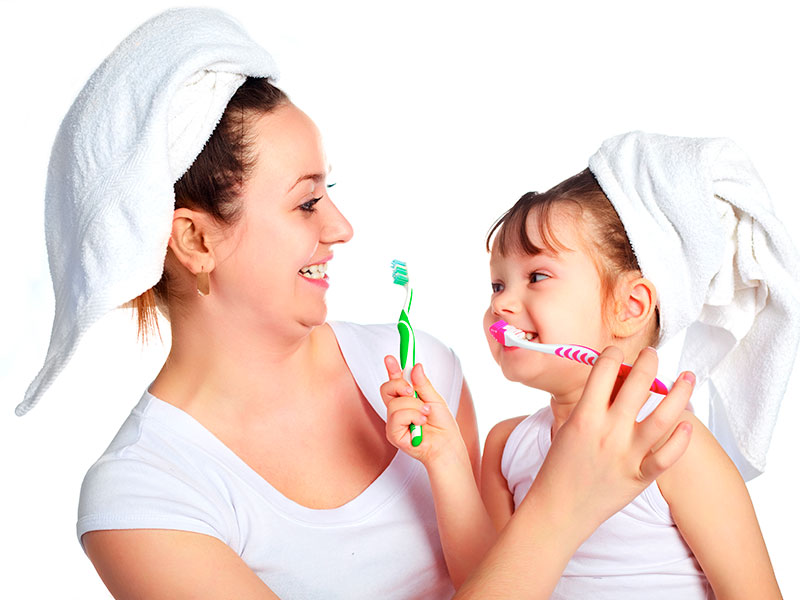When it comes to oral health, we often focus on our teeth and gums, but it’s essential not to overlook another crucial part of our mouths: our lips.
Healthy lips contribute significantly to overall oral hygiene and well-being.
In this blog post, we’ll explore why lip care is vital for your child’s oral health and provide practical tips to ensure their lips stay healthy and happy.
The Importance of Lip Care
Protection Against Infections
The lips are the outermost part of the mouth, and they act as a barrier against external elements.
Chapped, cracked, or damaged lips can become entry points for bacteria and viruses, leading to infections such as cold sores or angular cheilitis (inflammation and cracking at the corners of the mouth).
Healthy lips help prevent these issues, contributing to overall oral health.
Comfort and Functionality
Healthy lips are essential for comfortable eating, speaking, and smiling. Cracked or dry lips can make these everyday activities painful and challenging.
Ensuring your child’s lips are well-moisturized and protected can enhance their comfort and ability to perform these functions effectively.
Tips for Maintaining Healthy Lips
1. Stay Hydrated
One of the simplest yet most effective ways to keep lips healthy is to stay well-hydrated. Encourage your child to drink plenty of water throughout the day. Hydration from within helps maintain moisture levels in the lips, preventing dryness and cracking.
2. Use a Lip Balm with SPF
Lip balms provide a protective barrier that locks in moisture and prevents dryness. Look for lip balms that contain natural, nourishing ingredients like beeswax, shea butter, and coconut oil. Additionally, choose a lip balm with SPF to protect your child’s lips from the harmful effects of the sun’s UV rays.
3. Avoid Licking Lips
Licking lips might seem like a quick fix for dryness, but it actually makes the problem worse. Saliva evaporates quickly, leaving lips even drier than before. Encourage your child to apply lip balm instead of licking their lips.
4. Exfoliate Gently
Gently exfoliating the lips can help remove dead skin cells and promote smoother, healthier lips. You can use a soft toothbrush or a homemade lip scrub made from sugar and honey. Be gentle to avoid causing any damage to the delicate skin of the lips.
5. Maintain a Healthy Diet
A balanced diet rich in vitamins and minerals supports overall health, including the health of the lips. Foods high in vitamins A, C, and E are particularly beneficial. These vitamins help repair and protect the skin, keeping lips soft and healthy.
6. Protect Lips from Harsh Weather
Extreme weather conditions can take a toll on the lips. In cold, windy weather, make sure your child wears a scarf or mask to protect their lips from the elements. In hot, sunny weather, use a lip balm with SPF to shield their lips from sun damage.
7. Avoid Irritants
Certain foods and drinks can irritate the lips, leading to dryness and cracking. Spicy foods, citrus fruits, and salty snacks are common culprits. If your child experiences irritation from these foods, try to limit their intake and ensure they rinse their lips with water afterward.
8. Model Good Habits
Children learn by observing their parents. By taking good care of your own lips and demonstrating healthy habits, you can set a positive example for your child. Show them the importance of regular lip care and encourage them to make it a part of their daily routine.
Lip Care for Different Ages
Infants and Toddlers
For the youngest children, keeping lips clean and moisturized is key. Use a soft, damp cloth to gently clean their lips after feeding, and apply a small amount of baby-safe lip balm to prevent dryness.
School-Aged Children
As children grow, they can take on more responsibility for their own lip care. Teach them to apply lip balm regularly, especially before heading outside. Encourage them to stay hydrated and eat a balanced diet to support their overall health.
Teenagers
Teenagers might be more conscious of their appearance and more motivated to maintain healthy lips. Emphasize the importance of using lip balm with SPF and staying hydrated. Encourage them to avoid habits like lip biting or picking at dry skin.
When to Seek Professional Help
While most lip care can be managed at home, there are times when professional help is needed. By incorporating these lip care tips into your child’s daily routine, you can help them enjoy healthy, comfortable, and beautiful smiles.
But, if your child’s lips are persistently dry, cracked, or show signs of infection, it’s important to consult a healthcare provider. Persistent lip issues can sometimes indicate underlying health conditions that require attention.
Remember, oral health is a holistic concept that encompasses every part of the mouth. Taking care of your child’s lips is an essential aspect of their overall well-being.
Schedule regular dental check-ups with us to ensure that all aspects of your child’s oral health are monitored and maintained. Together, we can create a foundation for a lifetime of healthy smiles!










